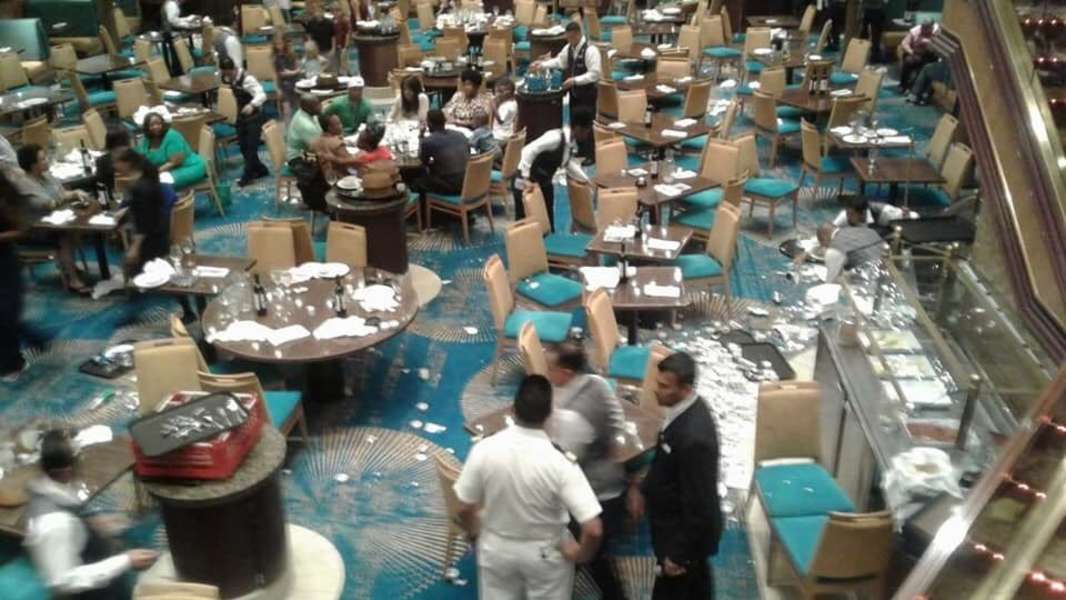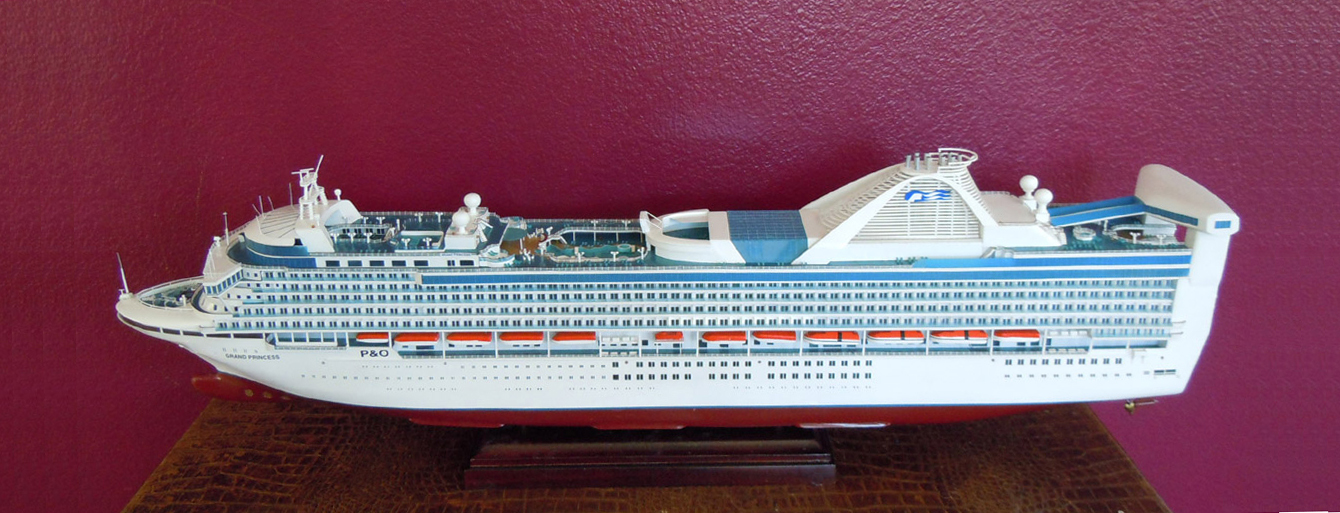
U.S. Centers for Disease Control and Prevention will not be notified immediately by cruise ships about the death. The U.S. Centers for Disease Control and Prevention need to be notified if the ship docks in a U.S. homeland port. A further investigation may be needed to determine what caused the death. Also, a cruise vessel may keep the body until it returns to port for disembarkation in the country of origin.
Unnatural deaths
The study on cruise ship unnatural deaths reported 140 passenger and crew deaths in 43 years. The study analyzed data from 78 passenger and river cruise ships, classifying them according to their age, gender, nationality, as well as the recorded cause. Although there has been an increase in the number deaths among crew and passengers, suicides or other unrelated causes of death remain a major cause. The report is a step towards preventing further deaths.

Coronavirus infections
After a string of coronavirus epidemics, a major cruise line has ceased operations on all its ships. Australia has been rocked with the high incidence of cases, hospitalizations, as well as deaths, caused by Covid-19. Over 4800 active cases per day were recorded at one point. Some passengers were even turned away from cruises because of the dire situation.
Drowning
Drownings on cruise ships are not an uncommon occurrence. Drowning is a common cause of death on beaches, in swimming pools, or even at boating accidents. It is particularly dangerous to drown on cruise ships. Statisticians have shown that eight children died in cruise ship swimming areas in the last three decades. These statistics do include deaths from drowning or injuries sustained on shore excursions.
Falls from balconies
Unlike driving a car, the chances of dying from a fall on a cruise ship are far lower than in the car accident. If passengers on cruise ships have a seat belt, they are less likely to fall. Because falls from balconies are more common, cruise ship passengers need to take precautions to reduce their risk. One way to prevent falls from balconies is to keep the balcony door locked while on board. This will prevent panicking and ensure that no other person is on the balcony at any given time.

Negligence on the part of cruise line
If a passenger is killed by a malfunctioning device on a cruise ship, he or she may be entitled to compensation for the loss. Cruise lines must keep passengers safe at all costs. Many cruise line passengers don't know what the case is and so they never file a claim. It is important to hire a qualified cruise line lawyer.
FAQ
Are cruises a formal affair?
You don't have to dress up or wear anything extravagant. Simply be comfortable and open to relaxation.
Is there anything I should know about cruises?
Before you go on your first cruise, there are many things that you should know. First of all, remember that you will be traveling with other people. You never know what they think about things so don't be too critical. Remember that you'll be sharing meals and drinks with strangers. Dress appropriately. Do not wear shorts or tank tops on deck. Comfortable clothing will not cause you to get dirty. You should be prepared for extreme temperatures. Sunscreens are essential. In case you need to spend time outdoors, bring a hat. Don't forget to take responsibility for your safety. Don't drink and drive!
Is there an all-inclusive cruise?
The cruise ships do not offer all-inclusive meals as they do not provide any food for those with dietary restrictions. You will not find room service, laundry, or any other amenities like pools, gyms and spas on a cruise ship.
Certain cruise lines offer "all inclusive" packages, which include all the necessary amenities except alcohol. These packages typically include airfare, hotel accommodations and entertainment.
What does cruising look like?
When you book a cruise you must pay a deposit. This deposit is usually between $50 and $100. Your balance is due 30 days before departure. When you arrive at the port, you check into your cabin. Afterward, you may participate in one of the many onboard activities.
Do I need to tip my Cruise Director?
This can vary from cruise line-to-cruise line. Some cruise directors do receive tips while some don't. The best way to find out if you need to tip your Cruise Director is to ask them when you board the ship. They will usually tell you if they expect tips.
Can I bring my pet along?
Most cruise lines allow pets to travel on board. There are however some restrictions. You must ensure that your pet is healthy enough for travel. Pets with serious illnesses should not be taken onboard. You cannot bring service dogs or any other animals to board. Service dogs are trained for disabled persons. Finally, it is not permissible to bring any kind of dangerous animal onto board.
Statistics
- *20% Gratuities Apply on Free Unlimited Open Bar; Free Specialty Dining. (ncl.com)
- In addition, 10 to 15 percent gratuity is typically added to bar bills — for alcohol and soft drinks — and gratuities are applied to spa treatments. (cruiseline.com)
- You'll need to budget around $80 per person per day for this option – and an additional 18% gratuity. (travel.usnews.com)
- For an example of savings, Royal Caribbean offers up to a 40% discount with a dining package. (travel.usnews.com)
External Links
How To
How to keep safe while on a cruiseship
Before embarking on your cruise ship journey, there are many important things you should know. It is essential that you know how to behave while onboard a cruise ship so you don’t get into trouble. These safety tips will ensure that you have a safe trip.
-
Be aware of your surroundings at all times. On board a cruise ship, people tend to congregate together, especially during meals. It is easy to lose sight of your task when you are surrounded by people who want food and chat. Do not let people distract you from your task. You should tell someone to stop doing something that is dangerous like smoking or drinking alcohol.
-
Always keep your room key close to you when you board the ship, and hand over your room key to the person checking you in. They'll be able to find you quickly if you need it. You should also have your passport on you.
-
Your valuables should be kept out of reach. Many cabins have drawers underneath the bed. It is a good place to store valuables like money, credit cards, passports, etc. Be sure to keep nothing valuable out of plain sight. Put your bags away in the closet so no one can see them.
-
Hydrate. Although cruise ships offer plenty of water, it can be difficult to remember to drink enough. Use the free bottled water that is available onboard. Try to avoid getting dehydrated. Dehydration can cause fatigue and make it difficult to concentrate, leading to arguments or even accidents.
-
Attention to announcements. Announcements are posted everywhere, including on TV screens and public address systems. These announcements include safety procedures, emergency exits and weather reports. Pay attention to these announcements. They could save your life.
-
Never leave your cabin unlocked. No matter how helpful a crew member appears, you should never leave your cabin unlocked. Many thieves break into cabins by stealing the doors. If you need to use the restroom, ask a crew member for permission first.
-
Avoid going overboard alone. It takes time for the ship’s crew to rescue anyone who falls overboard. Your body could be attracted by sharks or other sea animals. Waiting until help arrives is the best option.
-
Never smoke inside the elevator. These elevators are pressurized, meaning smoke can build up quickly. Get out as soon as you feel dizzy. It doesn't necessarily mean that breathing is safe, even though the outside air is clean.
-
Know how to evacuate. Every year, thousands die from being trapped in an elevator. Follow the instructions on screen if you are in an emergency.
-
Get familiar with the fire drill. Fire drills happen regularly, usually once per day. Everyone on deck needs to evacuate during a drill. Follow the crew members' directions. When the drill is finished, return to the cabin and lock your door.
-
Ask questions before accepting food or drinks. Cruisers often experience food poisoning. Many people don’t know that certain foods may not be safe to consume while aboard a cruise ship. Many cruise ships ban raw oysters. If you're not sure whether the food being served is safe, you can politely decline it and opt for another meal.
-
You should be cautious when swimming in the pool. Many people have fallen into the pools by accident. It is possible to slip and fall into the pool without being noticed. It is also possible to slip on the ground. So always wear proper footwear and pay attention to your surroundings.